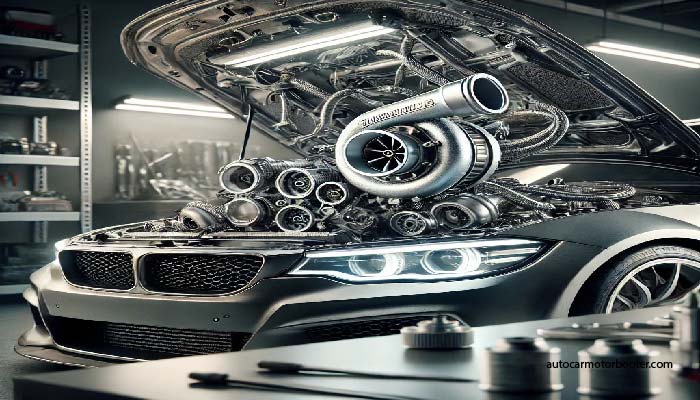
Boosting a car can sound exciting, especially for those looking to enhance their vehicle’s performance and power. However, the process involves more than just installing a turbocharger or upgrading parts; it brings along financial, mechanical, and maintenance costs. Knowing the real costs associated with boosting a car helps car owners make an informed decision, ensuring their investment delivers long-term satisfaction rather than unexpected expenses.
What Does “Boosting a Car” Mean?
To boost a car means to increase its power output, typically through the installation of turbochargers, superchargers, or performance-enhancing parts. While these modifications can significantly improve speed and torque, they often require substantial mechanical adjustments to ensure safety and reliability. Boosting a car can be an expensive endeavor, involving both initial installation costs and ongoing expenses for maintenance.
Initial Costs of Car Boosting
- Turbocharger or Supercharger Kit: The cost of a turbo or supercharger kit ranges between $1,000 and $10,000 depending on the type and brand. High-performance kits tend to cost more due to their increased durability and advanced design.
- Labor Costs: Installation of a boosting system is complex and often requires a trained mechanic. Labor costs can vary from $500 to $3,000, based on the complexity of the job and the specific model of the car.
- Supporting Modifications: Boosting a car may also require upgrades to other car systems to handle the increased power. For example, upgrading the fuel system, installing better cooling components, and reinforcing the engine internals can add another $1,000 to $5,000 to the total cost.
Hidden Costs Associated with Boosting
While the initial costs can be daunting, hidden expenses often catch car owners off guard. The increased strain on the engine and other car parts leads to more frequent maintenance, part replacements, and fuel consumption, which can increase your expenses significantly over time.
- Increased Fuel Consumption: Boosted engines often consume more fuel, especially under high loads. Fuel costs can rise substantially, particularly if the car is frequently driven at high speeds.
- Regular Maintenance: Boosted cars require more frequent maintenance to keep the engine and turbo system in good condition. This maintenance includes regular oil changes, part inspections, and adjustments to maintain the performance boost, adding about $500 to $1,500 per year in maintenance expenses.
- Wear and Tear on the Engine: Boosting stresses the engine components, reducing the overall lifespan of parts. Major repairs or part replacements, like pistons or gaskets, can cost an additional $1,000 to $3,000 over the car’s lifespan.
Long-Term Financial Implications of Boosting a Car
Long-term costs can escalate due to the need for frequent part replacements, high insurance premiums, and reduced resale value. Insurance companies may increase premiums on modified cars due to the heightened risk associated with boosted performance. Furthermore, resale values often drop as boosted cars may appear less reliable to potential buyers.
- Insurance Costs: Some insurance providers consider boosted cars a risk and may charge extra, adding $200 to $1,000 annually.
- Resale Value: The resale value of a boosted car may decrease, as some buyers prefer unmodified vehicles for reliability.
Is Boosting a Car Worth the Investment?
While boosting can elevate your car’s performance, it’s essential to weigh these costs carefully. If you’re an enthusiast who enjoys powerful driving experiences, the upfront and long-term expenses might be worthwhile. However, for those who use their car for daily commuting, these additional costs may not align with their needs.
5 FAQs About the Cost of Boosting a Car
- How much does it cost to install a turbocharger?
- Turbocharger kits typically cost between $1,000 and $10,000, depending on quality and performance. Installation adds another $500 to $3,000.
- Does boosting a car increase fuel costs?
- Yes, boosted cars generally consume more fuel, especially under high speeds, adding to the car’s overall running cost.
- What maintenance does a boosted car require?
- Boosted cars need frequent oil changes, inspections, and part adjustments, costing around $500 to $1,500 annually.
- How does boosting a car impact engine lifespan?
- Boosting adds strain to the engine, leading to faster wear and tear, and may necessitate repairs or replacements over time.
- Will boosting a car affect its resale value?
- Yes, boosted cars may have lower resale values as some buyers view them as less reliable.
Conclusion
The decision to boost a car requires careful consideration of all associated costs. While the performance benefits can be thrilling, the real costs of boosting a car extend beyond initial installation, impacting fuel usage, maintenance, and resale value. Weighing these factors can help you decide if boosting is truly the right choice for your driving lifestyle.
If Like This Article Visit Our Website. Collect From Wekiapedia